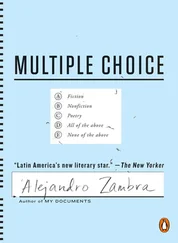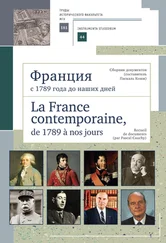Once he was alone, Sebastián set up the computer and confirmed what he already suspected: it was notably inferior, no matter how you looked at it, to the one he already had. He laughed about it a lot with his mother’s husband, after lunch. Then, together, they went to the basement to find a place to store the computer, where it has been ever since, waiting, as they say, for better times to come.
1
The teachers called us by our number on the list. I say that in apology: I don’t even know my character’s name, though I remember much about 34 very well. At that time, I was 45. Because of the first letter of my last name, I enjoyed a more stable identity than the others. I still feel a certain familiarity with that number. It was good to be last, number 45. Much better than being, for example, 15, or 27.
The first thing I remember about 34 is that he sometimes ate carrots during recess. His mother peeled them and placed them harmoniously in a little Tupperware that he opened by cautiously loosening the corners. He measured the exact amount of force necessary, as if practicing a very difficult art. But more important than his taste for carrots was the fact that he had been held back: he was the only student in our grade who was repeating it.
For us, repeating a grade was a shameful affair. We had never gotten close to that kind of failure in our short lives. We were eleven or twelve years old, we came from all kinds of backgrounds, and we had been selected to enter Chile’s gargantuan and illustrious National Institute: our files were impeccable. But then there was number 34: his presence was proof that failure was possible, and that perhaps it wasn’t even that bad, because he wore his stigma with ease, as if he were, ultimately, happy to go back over the same subjects again. “You’re a familiar face,” a teacher would sometimes say to him, sarcastically, and 34 would respond graciously: “Yes, sir, I’m repeating this grade. I’m the only one repeating in the class. But I’m sure that this year is going to go better for me.”
Those first months at the National Institute were hell. The teachers made sure to tell us over and over how difficult the school was; they tried to make us regret coming there, tried to make us go back to “the school on the corner,” as they said, contemptuously, in that terrifying, gargling tone of voice.
I don’t know if it’s necessary to clarify that those teachers were some real sons of bitches. They did have names, first ones and last ones: the math teacher, Mr. Bernardo Aguayo, for example — he was a total son of a bitch. And the shop teacher, Mr. Eduardo Venegas. A real motherfucker. Neither time nor distance has dampened my rage. They were cruel and mediocre. Frustrated and stupid people. Obsequious Pinochetistas. Fucking assholes. But I was talking about 34, and not those fucking bastards we had for teachers.
***
Number 34’s behavior was not what you would expect from someone who was repeating a grade. You’d think that a kid who gets held back would be sullen, out of step with their new class, reluctant to join in, but 34 was always willing to experience things right along with us. He didn’t suffer from that attachment to the past that makes kids who repeat grades into unhappy and melancholic characters, perpetually trailing along behind their classmates from the previous year, or waging a continuous battle against those who are supposedly to blame for their situation.
That was the strangest thing about 34: he wasn’t resentful. Sometimes we would see him talking with teachers who were unknown to us, teachers from other seventh-grade classrooms. They were happy conversations, with hand gestures and pats on the back. He maintained cordial relations with the teachers who had failed him, it seemed.
We quaked every time 34 showed signs of his undeniable intelligence during class. But he never showed off; quite the contrary, he interjected only to suggest new points of view, or to give his opinion on complex subjects. The things he said weren’t written in the books, and we admired him for that, but our admiration for him frightened us: if someone so smart had failed, it made it seem all the more likely that we would fail too. We speculated behind his back about the real reasons he’d been held back: intricate family conflicts, long and painful illnesses. But deep down we knew that 34’s problem was strictly academic — we knew that his failure would be, tomorrow, our own.
Once, he came up to talk to me unexpectedly. He looked alarmed and happy all at once. It took him a moment to start talking, as if he had thought for a long time about what he was going to say to me. “You don’t have anything to worry about,” he finally blurted out. “I’ve been watching you, and I’m sure you’re going to pass.” It was so comforting to hear that. It really made me happy. It made me irrationally happy. 34 was, as they say, the voice of experience, and knowing what he thought about me was a relief.
Soon I found out that the same scene had been repeated with others in our class, and a rumor spread that 34 was messing with us. But then it occurred to us that this might be his way of instilling confidence in us. And we needed that confidence. The teachers tortured us daily, and we lived in fear of our report cards. There were almost no exceptions. We all felt we were headed straight for the slaughterhouse.
The key was to figure out if 34 was communicating the same message to all of us, or only to a chosen few. There were seven students who still had not been absolved by 34; they went into a state of panic. 38—or 37, I don’t remember his number well — was one of the most worried. He couldn’t stand the uncertainty. His desperation grew so intense that, one day, defying the logic of the nominations, he went up to 34 and asked him directly if he would pass. 34 seemed uncomfortable with the question. “Let me study you,” he proposed. “I haven’t been able to watch everyone — there are a lot of you. I’m sorry, but until now I haven’t paid very much attention to you.”
You have to understand, 34 was not putting on airs. Absolutely not. There was a permanent note of honesty in his manner of speaking. It was never easy to doubt what he was saying. His frank gaze helped too: he made sure to look you in the eyes, and he spaced out his sentences with brief but suspenseful pauses. A slow and mature rhythm beat within his words. “I haven’t been able to watch everyone. There are a lot of you,” he had told 38, and no one doubted this. Number 34 spoke oddly and he spoke seriously. Although perhaps back then we believed that in order to speak seriously, you had to speak oddly.
The next day 38 asked for his verdict, but 34 answered only with excuses, as if he wanted to hide — we thought — a painful truth. “Give me more time,” he said. “I’m still not sure.” By then we’d all given him up for lost, but a week later, after completing the observation period, 34 went up to 38 and told him, to everyone’s surprise: “Yes, you will pass. It’s definite.”
We were happy, of course, and we also celebrated on the following day, when he rescued the remaining six. But there was still something important to resolve: now all of the students had been blessed by 34, and it was unusual for everyone to pass. We did some investigating and we found that never, in the almost two hundred years of the school’s history, had all forty-five students in a seventh-grade class passed.
During the following, decisive months, 34 noticed that we had begun to doubt his predictions, but he didn’t acknowledge it: he went on faithfully eating his carrots, and he regularly spoke up in classes, volunteering his brave and attractive opinions. He knew we were watching him, that he was in the hot seat, but he always greeted us with that same warmth.
Читать дальше












